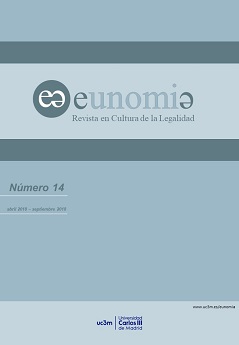Presidential System
Abstract
The presidential system has been a subject of intense debate in Latin America, first because some authors claimed that the regimes in the region were a "deviant" or "atrophied" copy of the American model and later because this form of government was identified as one of the factors that explained the collapse of their democracies. This article examines the debate opened by Linz in the eighties over the performance of presidential systems, aiming to bring up some of the elements that are still relevant for studies over presidentialism. Taking into account the main variables that according to these debates determine the role of the government within the institutional framework, it distinguishes among three of its variations: "hyperpresidentialism", "moderate" presidentialism and "attenuated" presidentialism.
Downloads
Eunomía. Revista en Cultura de la Legalidad is a duly registered journal, with EISSN 2253-6655.
The articles published in Eunomía are –unless indicated otherwise– under a Creative Commons Attribution-No Derivative Works 3.0 Spain license. You can copy, distribute and communicate them publicly as long as you cite their author and the journal and institution that publishes them and do not make derivative works with them. The full license can be consulted at: http://creativecommons.org/licenses/by-nd/3.0/es/deed.es




